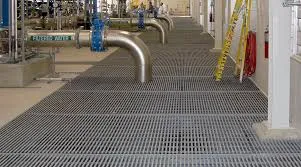
-
 Afrikaans
Afrikaans -
 Albanian
Albanian -
 Amharic
Amharic -
 Arabic
Arabic -
 Armenian
Armenian -
 Azerbaijani
Azerbaijani -
 Basque
Basque -
 Belarusian
Belarusian -
 Bengali
Bengali -
 Bosnian
Bosnian -
 Bulgarian
Bulgarian -
 Catalan
Catalan -
 Cebuano
Cebuano -
 China
China -
 China (Taiwan)
China (Taiwan) -
 Corsican
Corsican -
 Croatian
Croatian -
 Czech
Czech -
 Danish
Danish -
 Dutch
Dutch -
 English
English -
 Esperanto
Esperanto -
 Estonian
Estonian -
 Finnish
Finnish -
 French
French -
 Frisian
Frisian -
 Galician
Galician -
 Georgian
Georgian -
 German
German -
 Greek
Greek -
 Gujarati
Gujarati -
 Haitian Creole
Haitian Creole -
 hausa
hausa -
 hawaiian
hawaiian -
 Hebrew
Hebrew -
 Hindi
Hindi -
 Miao
Miao -
 Hungarian
Hungarian -
 Icelandic
Icelandic -
 igbo
igbo -
 Indonesian
Indonesian -
 irish
irish -
 Italian
Italian -
 Japanese
Japanese -
 Javanese
Javanese -
 Kannada
Kannada -
 kazakh
kazakh -
 Khmer
Khmer -
 Rwandese
Rwandese -
 Korean
Korean -
 Kurdish
Kurdish -
 Kyrgyz
Kyrgyz -
 Lao
Lao -
 Latin
Latin -
 Latvian
Latvian -
 Lithuanian
Lithuanian -
 Luxembourgish
Luxembourgish -
 Macedonian
Macedonian -
 Malgashi
Malgashi -
 Malay
Malay -
 Malayalam
Malayalam -
 Maltese
Maltese -
 Maori
Maori -
 Marathi
Marathi -
 Mongolian
Mongolian -
 Myanmar
Myanmar -
 Nepali
Nepali -
 Norwegian
Norwegian -
 Norwegian
Norwegian -
 Occitan
Occitan -
 Pashto
Pashto -
 Persian
Persian -
 Polish
Polish -
 Portuguese
Portuguese -
 Punjabi
Punjabi -
 Romanian
Romanian -
 Russian
Russian -
 Samoan
Samoan -
 Scottish Gaelic
Scottish Gaelic -
 Serbian
Serbian -
 Sesotho
Sesotho -
 Shona
Shona -
 Sindhi
Sindhi -
 Sinhala
Sinhala -
 Slovak
Slovak -
 Slovenian
Slovenian -
 Somali
Somali -
 Spanish
Spanish -
 Sundanese
Sundanese -
 Swahili
Swahili -
 Swedish
Swedish -
 Tagalog
Tagalog -
 Tajik
Tajik -
 Tamil
Tamil -
 Tatar
Tatar -
 Telugu
Telugu -
 Thai
Thai -
 Turkish
Turkish -
 Turkmen
Turkmen -
 Ukrainian
Ukrainian -
 Urdu
Urdu -
 Uighur
Uighur -
 Uzbek
Uzbek -
 Vietnamese
Vietnamese -
 Welsh
Welsh -
 Bantu
Bantu -
 Yiddish
Yiddish -
 Yoruba
Yoruba -
 Zulu
Zulu
High-Temperature Solutions Using Fiberglass Products for Enhanced Durability and Performance in Extreme Conditions
Fiberglass Products for High Temperature Applications
Fiberglass, a composite material made from fine fibers of glass, has gained significant popularity in various industries due to its exceptional properties. One of the critical applications of fiberglass is in high-temperature environments. These products not only withstand extreme conditions but also offer durability and lightweight features that make them suitable for numerous applications.
Properties of Fiberglass
The versatility of fiberglass can be attributed to its unique composition. Fiberglass is inherently resistant to heat, corrosion, and chemical degradation. This makes it an excellent choice for environments where traditional materials, such as metals and plastics, might falter due to thermal stress or chemical exposure. Moreover, fiberglass has a low thermal conductivity, which means that it can act as an effective insulation material, minimizing heat transfer and providing safety in high-temperature settings.
Applications in High-Temperature Scenarios
1. Aerospace Industry In the aerospace field, fiberglass is utilized in the manufacturing of components that must endure high temperatures and pressures, such as parts of rockets and satellites. Its lightweight nature reduces fuel consumption while retaining mechanical strength and thermal resistance, making it a preferred material for aerospace engineers.
2. Automotive Sector The automotive industry also relies on fiberglass for various parts, including heat shields and exhaust components. These parts must endure high temperatures generated by engines while remaining lightweight and resistant to corrosion. Fiberglass composites can adequately fulfill these requirements, leading to improved vehicle performance and longevity.
fiberglass products for high temperature

3. Industrial Applications In industrial settings, fiberglass is utilized in high-temperature piping, storage tanks, and furnace linings. For example, fiberglass-reinforced plastics (FRP) are employed in chemical processing plants to handle corrosive materials while withstanding high temperatures. The material's resilience helps reduce maintenance costs and downtime, enhancing operational efficiency.
4. Electrical Insulation Fiberglass is widely used in electrical insulation products. High-voltage cables and transformers benefit from the material's ability to withstand extreme conditions. The electrical insulation properties of fiberglass, combined with its thermal stability, make it ideal for high-temperature applications in power generation and distribution sectors.
Future Trends
As industries continuously seek improvements in energy efficiency and sustainability, the demand for fiberglass products in high-temperature applications is expected to rise. Advanced manufacturing techniques, including thermoplastic composites and hybrid materials, are being developed to enhance the performance of fiberglass. Research is ongoing to improve its heat resistance and overall mechanical properties, making it even more suitable for extreme environments.
Furthermore, with the increasing focus on lightweight materials in industries like aerospace and automotive, fiberglass is likely to see more innovative applications. As new formulations and processing methods emerge, manufacturers can produce fiberglass products with enhanced performance characteristics that cater to specific high-temperature requirements.
Conclusion
Fiberglass products have established themselves as indispensable materials in high-temperature applications across various industries, including aerospace, automotive, and chemical processing. Their remarkable thermal resistance, lightweight nature, and durability make them ideal for environments where traditional materials may not perform adequately. As technology progresses, the potential applications and enhancements of fiberglass will undoubtedly expand, ensuring that it remains at the forefront of high-temperature solutions for industries worldwide. The future looks bright for fiberglass as it adapts and evolves to meet the rigorous demands of modern engineering and manufacturing.
Latest news
-
High-Quality Fiberglass Car Bodies Durable GRP Car & Boat Body SolutionsNewsJul.08,2025
-
High-Quality Fiberglass Dual Lamination Product Manufacturer Durable FRP & GRP Dual Lamination SolutionsNewsJul.08,2025
-
Rectangular Tank with Dimensions for GRP Calculation Custom Fiberglass GRP Rectangular TanksNewsJul.07,2025
-
High-Quality Fiberglass Weir Custom FRP Weir & Fiberglass Tanks ManufacturerNewsJul.07,2025
-
CPVC FRP Pipe A Reliable Choice for Industrial Applications High Strength & Corrosion ResistanceNewsJul.07,2025
-
Fiberglass Scrubber for Effective Cleaning and Stain Removal – Superior Performance in Various ApplicationsNewsJul.06,2025









